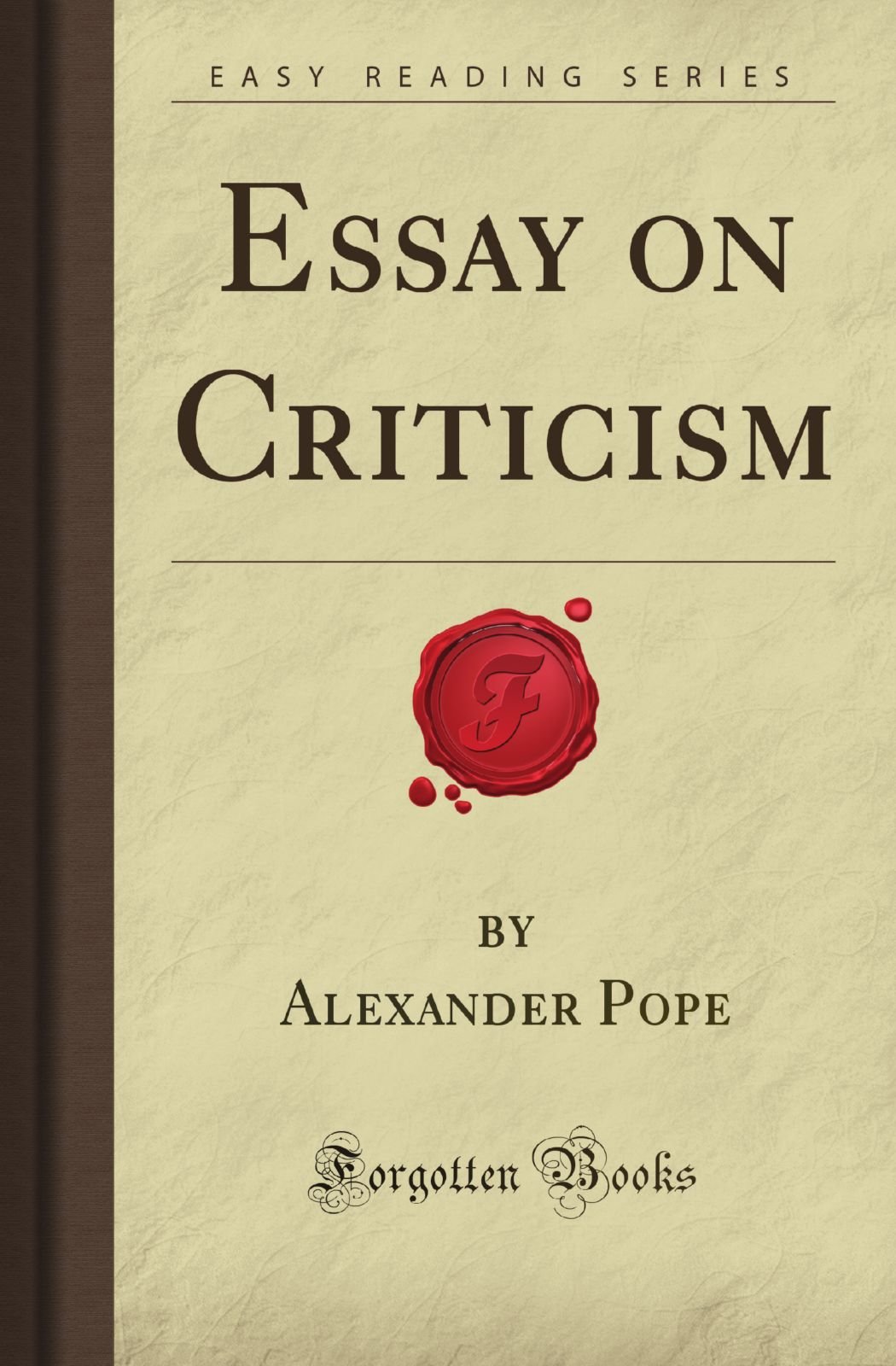An Essay on Criticism: Writer Crossword
If you are into crosswords, you might come across this specific question. If you do not know the author of this essay, most probably you will look it up online. All the top 10 resources will tell you that the author's name is Alexander Pope. He wrote it in 1711. It is a poem (yes, it's not an essay) where the author discusses the strengths and weaknesses of modern criticism. If you've ever heard the expression "To err is human; to forgive, divine", now you know that it is a part of this poem.

While reading it, you will see that Alexander Pope wrote universal truth that is still relevant. Apart from looking at the poem from a philosophical point of view, you can get many other insights as well. For instance, if you are a student and need tips on writing great essays, you can find them here. All you need is the right interpretation of the author's wise words.
Defend subjectivity. Every art is subjective. Some will always appreciate it while others might disapprove of it. That is why it is important to rely on your senses. You are responsible for what you create. If the essay you've written seems to be perfect from your point of view, turn it in and wait for the comments from your teacher. Teachers evaluate the technical part of the writing - grammar and your ability to communicate your ideas. If one day you write a novel, be ready to face criticism from others. There will always be someone who is not happy with your declaration by the means of art: "Tis with our judgments as our watches, none / Go just alike, yet each believes his own.” Know your limits. Even though the part of subjectivity is inevitable in your creative work, it is crucial to stay objective in terms of your capabilities. Evaluate your skills objectively and decide what you can or can't do. As the author puts it: “Launch not beyond your depth, but be discreet, / And mark that point where sense and dullness meet.” When you realize that some points of the assignment can't be done, do not get upset. You can consider many alternative options to complete the task successfully. Asking more experienced writers is one of them. Learn from the past generations. Alexander Pope addresses the great input of the ancient philosophers and writers. The tip here is to do everything to learn from the brightest minds of the past. However, he also mentions that some of the masterpieces are difficult to analyze part by part. Some of them are simply beautiful without any explanations needed. Just enjoy them as beauty is in the eye of the beholder.
See the whole picture. When we talk about the defragmentation of a piece of art, it can be difficult to analyze separate parts. The risk here is to miss seeing the whole picture. When you focus on specific details such as the author's style or biography, you can find yourself far away from the intended sense of that literary piece. Therefore, always try to see the big picture first and learn the main idea. Once you've done that, you can move forward to exploring the piece in more detail.
EssayHave.com®: Essay Writing Service
Focus on the quality of content. You might know that the writers often used ornamentation to make their poems and prose look impressive. However, Pope questions the relevance of that ornamentation. If the content itself is impressive, there is no need in any decoration of the text: “A needless Alexandrine ends the song, / That, like a wounded snake, drags its slow length along.” When you write an essay, do not focus on how attractive the piece looks. First, make sure the essay has all the required points and appeals to the readers.